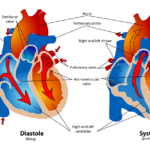Good mental health shows in how we think, feel, and act. Signs include feeling calm, handling stress well, sleeping enough, having good relationships, and enjoying life. You stay focused, make clear decisions, and bounce back from challenges. These are clear signs of a healthy mind and emotional well-being, important for daily life and long-term happiness.
Signs of good mental health for teens
Good mental health helps teenagers grow, learn, and enjoy life. It’s important to know the signs so parents, teachers, and teens themselves can support well-being. Below are clear signs that show a teen has strong and healthy mental health:
Key Signs of Good Mental Health in Teens
- Positive self-esteem – They feel good about who they are and accept their strengths and weaknesses.
- Healthy relationships – They enjoy spending time with family and friends and show respect and kindness.
- Ability to manage stress – They handle school pressure, peer challenges, or change without feeling overwhelmed.
- Open emotional expression – They talk about their feelings in a calm and honest way.
- Motivation and focus – They set goals, stay interested in activities, and concentrate on schoolwork.
- Good sleep and eating habits – They follow a regular sleep schedule and eat balanced meals.
- Willingness to seek help – They reach out to trusted adults or friends when feeling upset or unsure.
- Strong coping skills – They bounce back from setbacks and learn from mistakes.
- Positive outlook – They are hopeful, show gratitude, and look forward to the future.
- Respect for self and others – They make responsible choices and understand the impact of their actions.
Routine For Good Mental Health
A healthy daily routine plays a big role in keeping the mind happy and balanced. Teens and adults alike need structure, movement, and time to relax. Following a good routine helps reduce stress, improve focus, and support emotional well-being. When we stay active, eat well, sleep enough, and take time for ourselves, our mental health gets stronger. At Minds Hypnotherapy and Mental Health, we combine hypnosis and psychotherapy to support lasting emotional well-being.
Creating healthy habits every day leads to a more positive mindset and better mental wellness. Below is a simple table showing a balanced routine, including how to stay active and enjoy regular activities for good mental health.
The chart of Good Mental Health
| Time of Day | Activity | How It Helps |
| Morning (7–9 AM) | Wake up early, light exercise, breakfast | Boosts energy, sets a positive tone for the day |
| Mid-Morning | School/work, short walk/stretch | Improves focus, reduces stress |
| Noon (12–1 PM) | Healthy lunch, short break | Fuels body and mind, refreshes mental state |
| Afternoon (2–5 PM) | Productive time (study/work), hobby | Builds self-esteem, encourages creativity |
| Evening (5–7 PM) | Physical activity (walk, sport, yoga) | Boosts mood, reduces anxiety |
| Night (7–9 PM) | Dinner, time with family/friends | Builds connection, improves emotional health |
| Before Bed (9–10 PM) | Relaxation (reading, deep breathing) | Calms the mind, prepares for restful sleep |
| Night (10 PM+) | Sleep (7–9 hours) | Supports memory, mood, and mental recovery |
Warning signs of mental illness
Understanding the warning signs of mental illness is important for early help and better recovery. Mental illness can affect how a person thinks, feels, and behaves.
These changes may happen slowly or suddenly. When someone shows signs of mental health problems, it’s a signal that they need care and support.
Teens and adults with mental illness may struggle with emotions, daily activities, and relationships. Spotting early symptoms and acting quickly can make a big difference in getting the right treatment and improving quality of life.
Mental Health and Mental illness Difference
| Category | Good Mental Health | Signs of Mental Illness |
| Emotions | Feels happy, calm, and balanced | Feels sad, angry, anxious, or numb often |
| Relationships | Maintains healthy connections with family and friends | Withdraws or avoids people |
| Daily Activities | Able to focus, study, or work effectively | Struggles with tasks and loses interest in daily life |
| Sleep and Energy | Sleeps well and feels refreshed | Trouble sleeping or oversleeping, feels tired all day |
| Thinking and Focus | Thinks clearly and makes good decisions | Confused thinking, memory issues, or trouble concentrating |
| Behavior | Positive habits and self-care routines | Risky behaviors, substance use, or sudden mood shifts |
| Coping with Stress | Handles stress in a healthy way | Feels overwhelmed, uses unhealthy coping like drugs or alcohol |
Professional Ways to Reduce Mental Illness Symptoms
- Maintain routine and self‑care: Set realistic goals, manage energy by prioritizing tasks, and practice good sleep, exercise, and nutrition. These habits support brain health and mood balance.
- Learn and practice coping skills: Techniques like deep breathing, mindfulness, journaling, or problem-solving therapy (PST) help manage stress and anxiety.
- Engage in therapy early: Cognitive Behavioral Therapy (CBT), Interpersonal Therapy (IPT), and others are evidence-based ways to reduce symptoms and improve quality of life.
- Use professional support: Collaborative care models connect psychiatrists, therapists, and doctors to track progress and tailor treatment.
- Join self-help/support groups: Peer communities offer emotional strength, coping strategies, and a sense of belonging.
Get Proper Treatment
- Get a screening via your primary care doctor or mental health professional.
- Receive a diagnosis and create a treatment plan combining therapy, medication (e.g., SSRIs, SNRIs), and lifestyle changes.
- Start therapy—CBT, PST, or family therapy—2 to 12 weekly sessions.
- Monitor progress with your care team using symptoms tracking and appointments.
- Adjust treatment as needed—change therapy types or adjust medications.
- Consider intensive programs if symptoms are severe. Follow up regularly and stay connected with support groups.
- Seek emergency help (911 or 988) if you feel unsafe or have suicidal thoughts.
U.S. Clinics & Child/Adolescent Psychiatrists
UCLA Health Psychiatry (California)
- Phone: 800‑825‑9989 or 310‑825‑9989
- Location: Los Angeles, CA
- Website: UCLA Health Psychiatry
- Appointment: Call the number to request child/adolescent service.
Weill Cornell Psychiatry (New York City)
- Phone: (888) 694-5700
- Location: 525 East 68th Street
- New York, NY 10065
- Website: Weill Cornell Psychiatry
- Appointment: Contact directly via website or phone
UC Davis Behavioral Health Center (California)
- Phone: 916‑734‑3574
- Location: Sacramento, CA
- Website: UC Davis Psychiatry
- Appointment: Call to ask about child/adolescent referrals.
University of Miami Psychiatry (Florida)
- Phone: 305‑243‑0214
- Location: Miami, FL
- Website: UMiami Health Psychiatry
- Appointment: Call to schedule evaluation for mood, behavior issues.
Emory Healthcare Psychiatry (Georgia)
- Phone: 404‑778‑5526
- Location: Atlanta, GA
- Website: Emory Psychiatry
- Appointment: Call Mon–Fri 8 a.m.–5 p.m. for appointment info
Conclusion
In conclusion, signs of good mental health in teens include feeling confident, managing stress well, building strong relationships, and enjoying daily activities. A healthy mind helps teens stay focused, motivated, and emotionally balanced. Encouraging open communication, self-care habits, and support from loved ones can make a big difference in their overall well-being.






